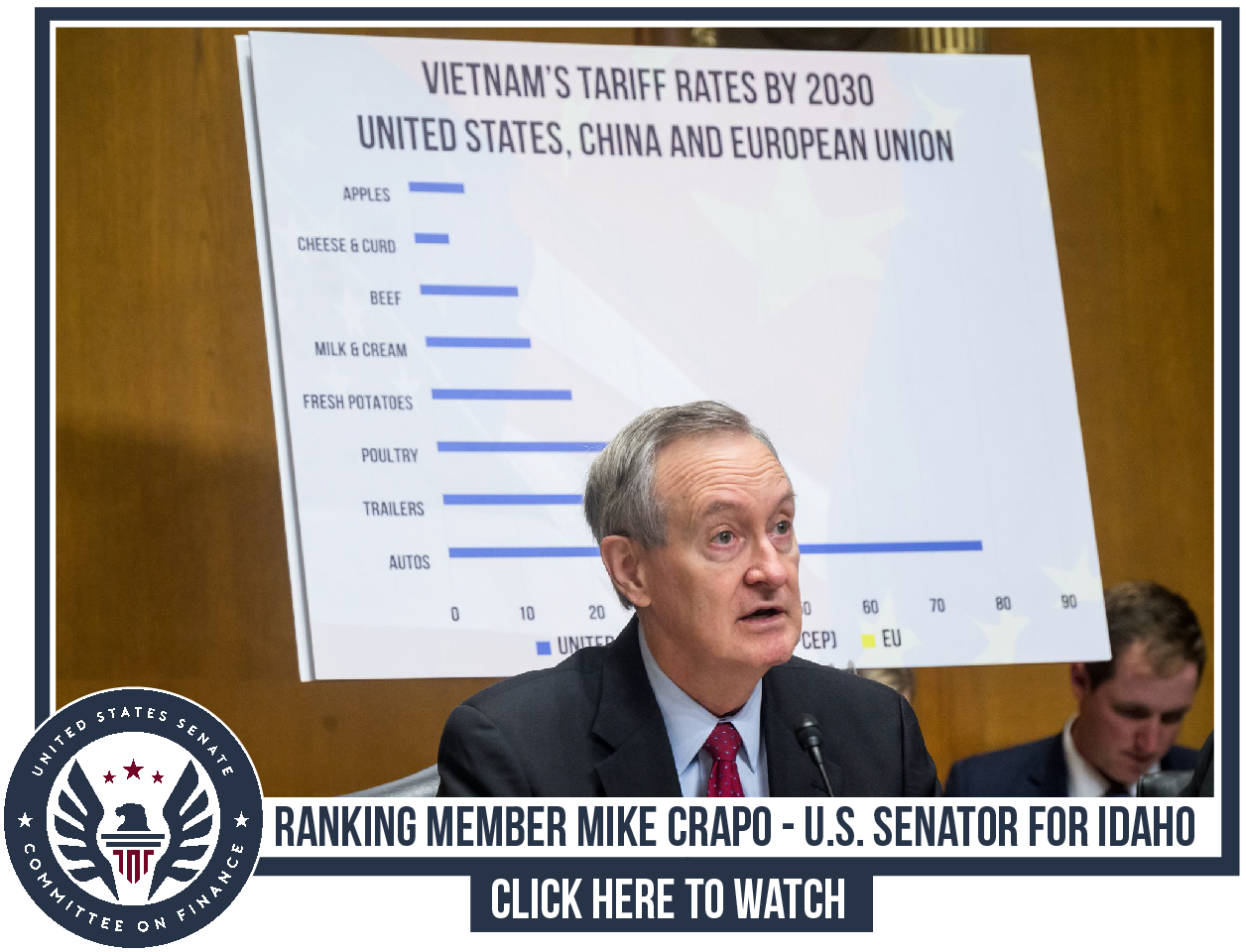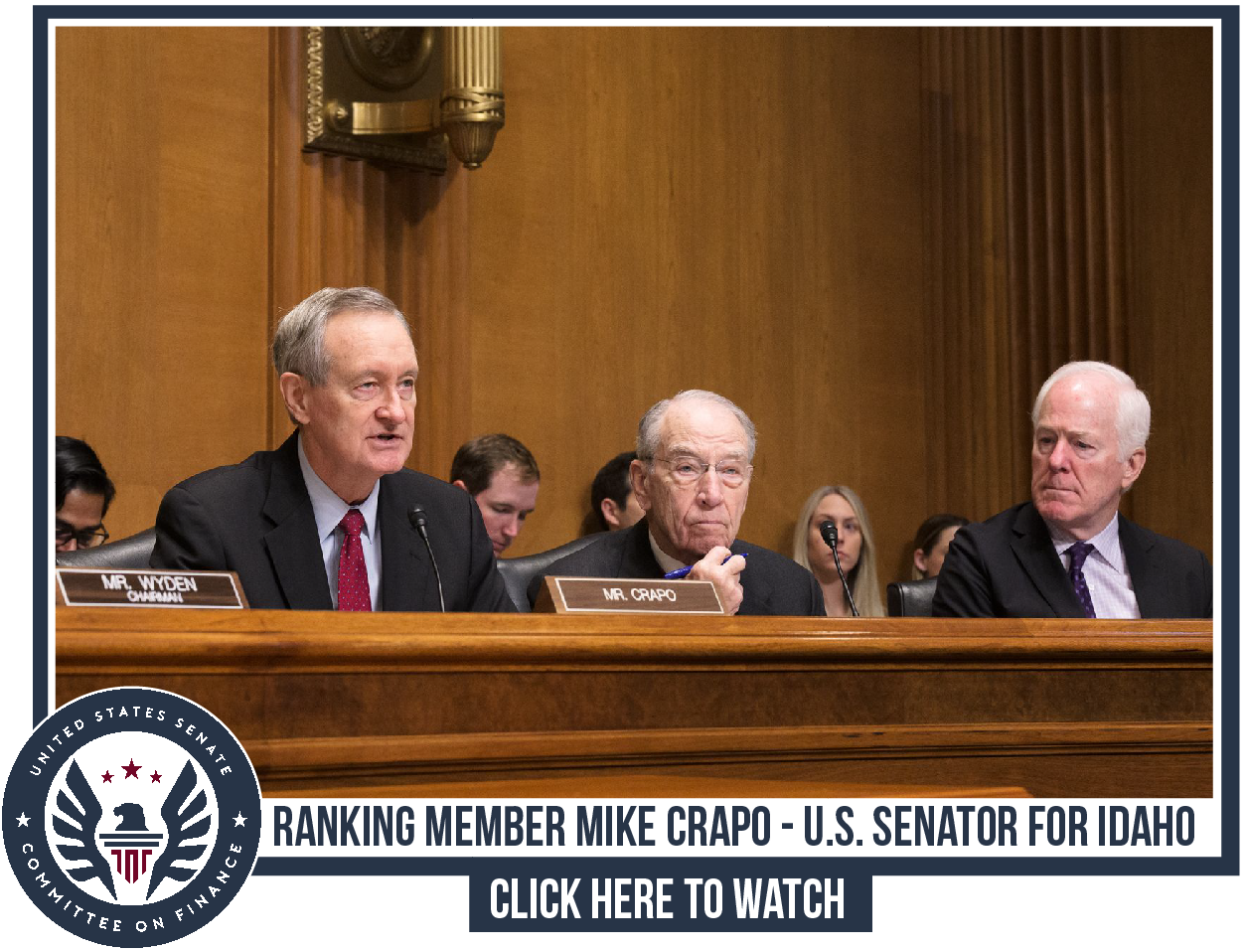Crapo: We Can and Must Do Better on Trade
At hearing with U.S. Trade Representative, Crapo says Administration’s trade policy lacking in substance and process
Washington, D.C.--At a U.S. Senate Finance Committee hearing on the President’s 2023 trade policy agenda with United States Trade Representative (USTR) Katherine Tai, Ranking Member Mike Crapo (R-Idaho) highlighted concerns with the Administration’s current approach to trade policy, from both a substance and a process standpoint.
Crapo raised concerns with high tariffs and unscientific restrictions that penalize America’s farmers and ranchers; barriers that stifle manufacturing exports; the waiving of U.S intellectual property rights; and measures that unreasonably target the U.S. digital economy. Crapo also stressed the Administration’s insufficient consultation with Congress, noting that U.S. trade policy is strongest when the Administration and Congress work together.

Crapo also highlighted concerns with the Administration’s go-it-alone approach to approval and implementation of the proposed Indo-Pacific Economic Framework for Prosperity (IPEF) and the proposal’s lack of an enforcement mechanism that risks minimizing foreign market access for American agricultural producers.

Click HERE to watch Senator Crapo question Ambassador Tai.
On the Administration’s failure to meaningfully engage Congress on IPEF:
The Administration has not yet responded to this Committee’s letter from December 1, 2022, signed by 20 members of this Committee, noting that IPEF agreements need to be approved by Congress. Many of us are assuming the answer to the question is, “no.” Could you clarify for me, is it the Administration’s position that you will enter into IPEF agreements without submitting them to Congress?
. . .
I get a clear feeling the answer to our question in our letter is “yes.” I will be looking very carefully for a prompt response to the letter we have sent to you.
On IPEF’s agricultural enforcement mechanism:
To date, we have not heard of an IPEF enforcement mechanism, including with respect to agriculture. It is critical we see compliance happen before any agreement is finalized, especially if it seeks to bypass Congress, to ensure the commitments are respected. Does the Administration agree that before any IPEF agreement is finalized, the United States should see a number of existing trade irritants, particularly agricultural barriers inconsistent with proposed IPEF commitments eliminated? Among those barriers, I would include Japan allowing market access for all fresh potatoes, including table stock potatoes. . . . Will we have assurance that these barriers to trade will be fixed before an IPEF agreement is reached?
Next Article Previous Article
